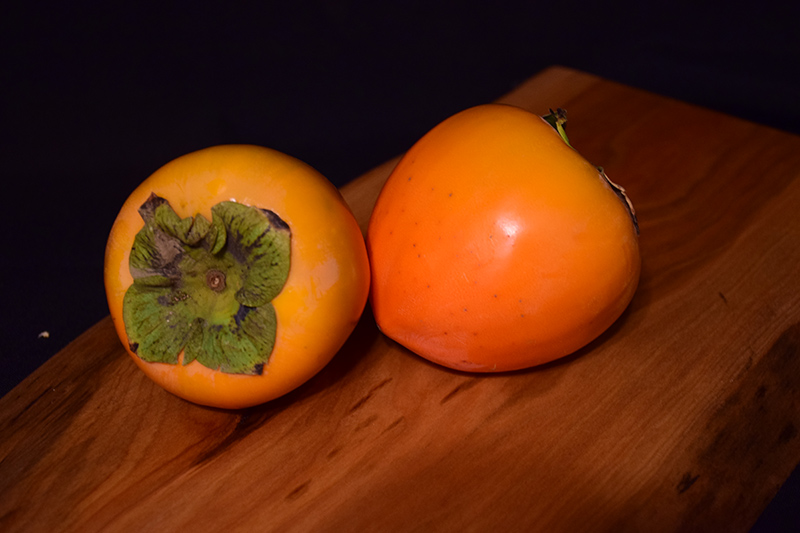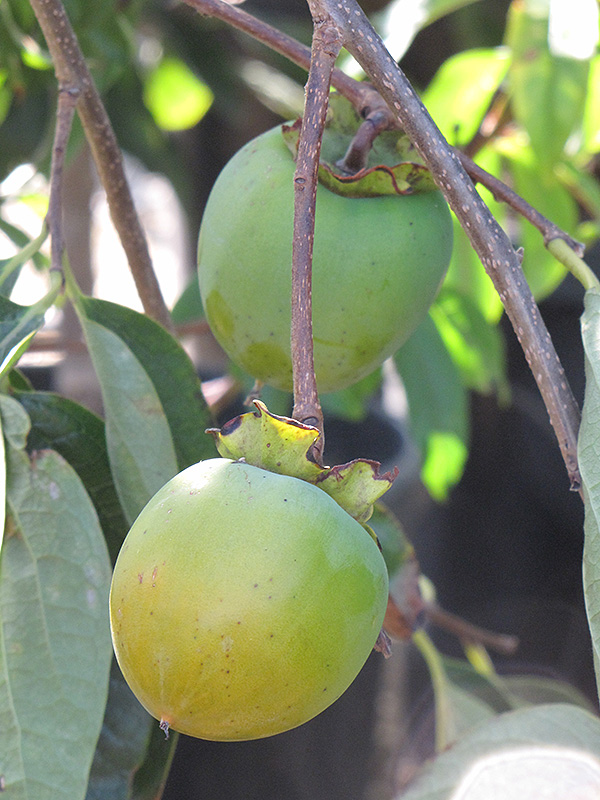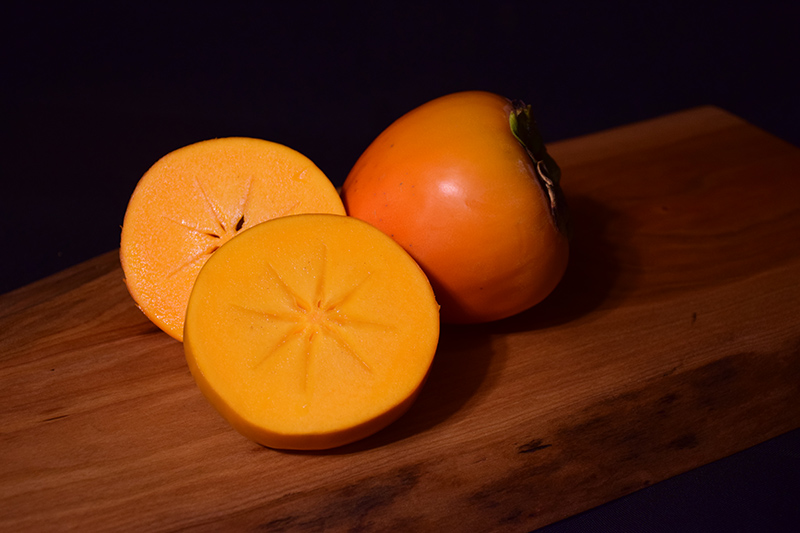Height: 25 feet Spread: 25 feet
Sunlight:
Hardiness Zone: 7b Other Names: syn. D. chinensis, Asian Persimmon, Keg Fig Brand: Monrovia Description: A popular cultivar producing flavorful sweet fruit that ripens in mid-November; this variety is self-pollinating; typically round-topped with an open, erect habit; the best variety for cooler summer areas Edible Qualities Hachiya Japanese Persimmon is a medium-sized tree that is typically grown for its edible qualities, although it does have ornamental merits as well. It produces orange round fruit (technically 'pomes') with a red blush which are usually ready for picking from early to mid fall. The fruits have a sweet taste and a firm texture. The fruit are most often used in the following ways: Features & Attributes Hachiya Japanese Persimmon has rich green deciduous foliage which emerges chartreuse in spring on a tree with a round habit of growth. The glossy oval leaves turn outstanding shades of orange, red and yellow in the fall. The fruits are showy orange pomes with a red blush, which are carried in abundance in mid fall. The fruit can be messy if allowed to drop on the lawn or walkways, and may require occasional clean-up. This is an open multi-stemmed deciduous tree with a more or less rounded form. Its average texture blends into the landscape, but can be balanced by one or two finer or coarser trees or shrubs for an effective composition. This is a high maintenance plant that will require regular care and upkeep, and is best pruned in late winter once the threat of extreme cold has passed. It is a good choice for attracting birds to your yard. It has no significant negative characteristics. Aside from its primary use as an edible, Hachiya Japanese Persimmon is sutiable for the following landscape applications; Planting & Growing Hachiya Japanese Persimmon will grow to be about 25 feet tall at maturity, with a spread of 25 feet. It has a low canopy with a typical clearance of 3 feet from the ground, and should not be planted underneath power lines. It grows at a medium rate, and under ideal conditions can be expected to live for 60 years or more. This is a self-pollinating variety, so it doesn't require a second plant nearby to set fruit. This tree can be integrated into a landscape or flower garden by creative gardeners, but is usually grown in a designated edibles garden. It does best in full sun to partial shade. It prefers to grow in average to moist conditions, and shouldn't be allowed to dry out. It is not particular as to soil type or pH. It is somewhat tolerant of urban pollution, and will benefit from being planted in a relatively sheltered location. This is a selected variety of a species not originally from North America.![]()
![]()
![]()
![]()
![]()
![]()
![]()
![]()
![]()
![]()
![]()
![]()
martha@rainfrostnursery.com
| 2452 Bethel Church Rd, Forest, VA 24551
Call us Today! (434) 525-3107
NetPS
Plant Finder
Characteristics
Applications
Features & Attributes
Phone:
(434) 525-3107 |
Email:
martha@rainfrostnursery.com |
Fax: 434-525-2062
Address: 2452 Bethel Church Rd, Forest, VA 24551
Business Hours:
Retail Nursery Hours are 9 to 5 Monday through Sat. | Closed Sundays




Content, including images, displayed on this website is protected by copyright laws. Downloading, republication, retransmission or reproduction of content on this website is strictly prohibited. Terms of Use
| Privacy Policy




